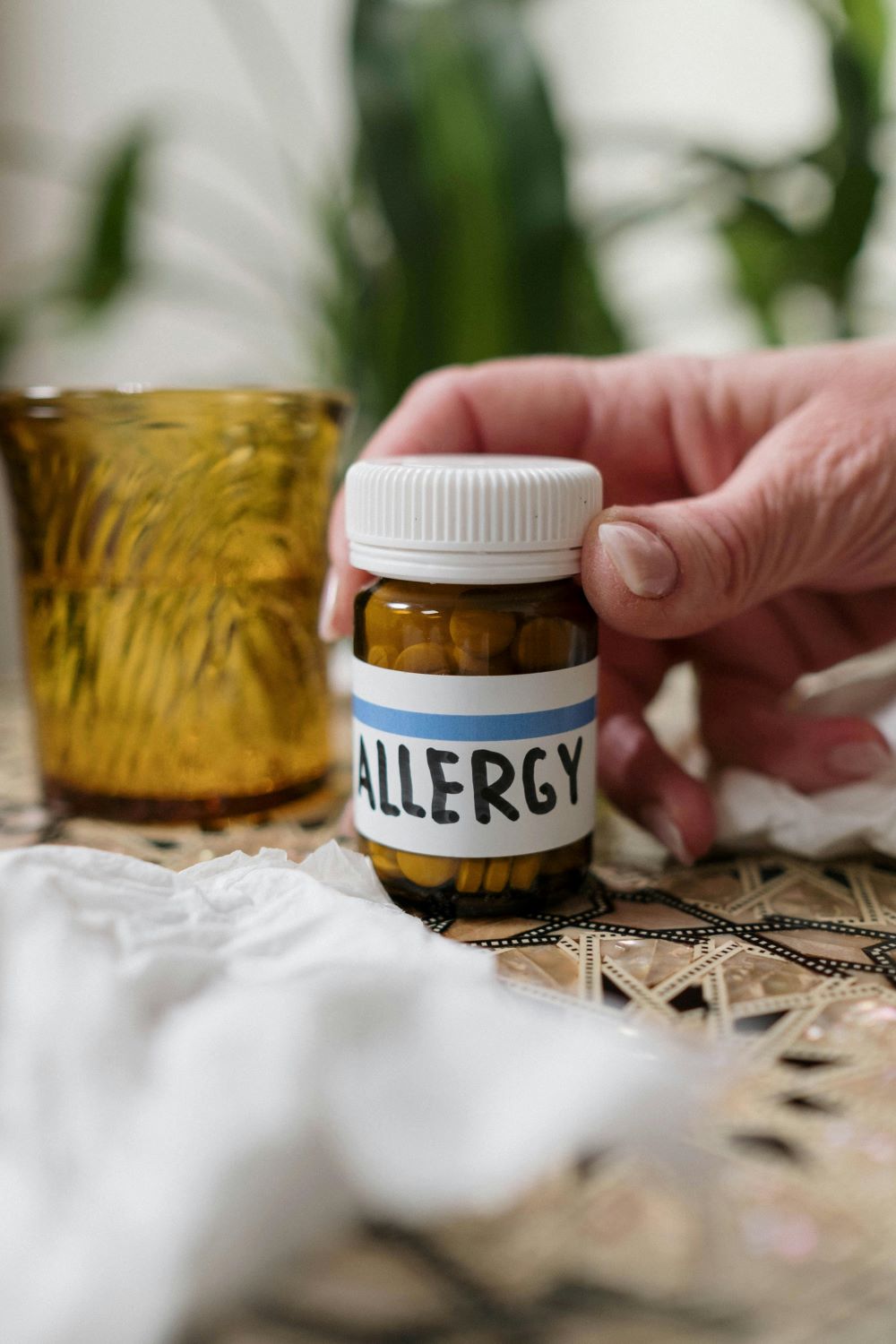Combining formulated inulin gel with protein allergens could prevent anaphylactic shock.
In a recent study published in Nature Materials, a team of researchers has developed an innovative oral immunotherapy platform utilizing formulated inulin gel combined with food allergens that might help ward off food allergies, which can be life-threatening. This groundbreaking approach aims to deliver dietary antigens directly to intestinal dendritic cells and modulate the microbiome-metabolites-immune axis in situ, establishing allergen-specific and sustained oral tolerance.
Food allergies affect a significant portion of the U.S. population, with an estimated 33 million people suffering from these, including 5.6 million children – an estimated one out of 13 children or two in every U.S. classroom. This is why food restrictions in schools are so important. Allergic individuals who react to ingesting a substance can experience life-threatening anaphylactic shock. This is where the heart beats rapidly and the throat swells, making it difficult to breathe.
The most common food allergens include milk, eggs, peanuts, tree nuts, shellfish, fish, wheat, soy, and sesame, but there are many others. The prevalence of these is increasing, with the Centers for Disease Control and Prevention (CDC) reporting a 50% rise in food allergies among children between 1997 and 2011 alone.

According to health experts, in fact, allergens from foods have become a growing health concern globally, especially in industrialized countries. Current strategies for managing symptoms involve restricting the intake of certain foods, avoiding contact altogether (i.e., avoiding even touching allergens), experimental therapies, allergy shots, and emergency interventions such as carrying an EpiPen on one’s person.
In January 2020, the U.S. Food and Drug Administration (FDA) approved the first oral immunotherapy drug, Palforzia, to reduce the severity and incidence of peanut allergies specifically as rates of peanut allergies have skyrocketed. Despite approval, however, nearly 20% of patients discontinued use due to gastrointestinal adverse events, which draws attention the challenges of bringing adequate drugs to market.
Peanuts are a huge source of cross-contamination as they are commonly processed in plants that process a variety of other foods. Many children are allergic, and thus, most schools don’t allow the nut, or any food or drinks containing it, to get through the doors. Many consumables also come equipped with labels warning consumers they’ve been manufactured in facilities that also process nuts.
Emerging research suggests that food allergies may be linked to gut microbiome dysbiosis and the metabolites released as a result. Allergen desensitization has been observed after probiotic therapy or fecal microbiota transplantation, which support this approach.
In the recent study, the team aimed to address the challenge of effectively administering dietary allergens to the small intestine, where most food allergen tolerance and antigen priming occur by designing an inulin gel-based oral immunotherapy platform targeting the intestine’s dendritic cells. Inulin is a plant-derived prebiotic polysaccharide that encourages gut bacterial growth in this areas of the body and is not absorbed or digested in the stomach.
The researchers heated inulin in phosphate-buffered saline (PBS), cooled it to a gel form, and blended it with protein allergens such as that in chicken and milk. Then, using a mouse model for testing, they administered the gel and proteins via oral immunotherapy, measuring various parameters, including body weight, complete blood count, body temperature, and biochemical markers such as immunoglobulin E (IgE), interferon-gamma (IFNγ), mucosal mast cell protease (MMCP)-1, and interleukins (IL), to determine its safety. The team also explored whether the body’s naturally produced inulin mixed with protein allergens produced similar responses while analyzing the immune landscape of the small intestinal lamina propria using single-cell RNA sequencing (scRNAseq) after treatment.
Ultimately, the study revealed the mix of formulated inulin gel and protein allergens were retained in the small intestine for long periods of time. This allowed for antigen uptake by dendritic cells and prolonged unresponsiveness to the allergen for over 13 weeks post-therapy. The mice sensitized to ovalbumin and administered free ovalbumin or PBS produced anaphylactic shock symptoms while those treated with inulin gel and ovalbumin showed attenuated anaphylactic responses, no systemic hypothermia, and notably less instances of diarrhea, according to the findings.
These results demonstrated that oral immunotherapy platform combining formulated inulin gel with protein allergens like ovalbumin or casein can be effectively retained in the small intestine. This causes antigen uptake by dendritic cells, eliciting immune responses that suppress allergic inflammation and anaphylactic shock. Thus, the new method could be a successful treatment for those struggling with food allergies should further research confirmed viability.
Sources:
Inulin-gel-based oral immunotherapy may offer long-awaited treatment for food allergy sufferers


Join the conversation!